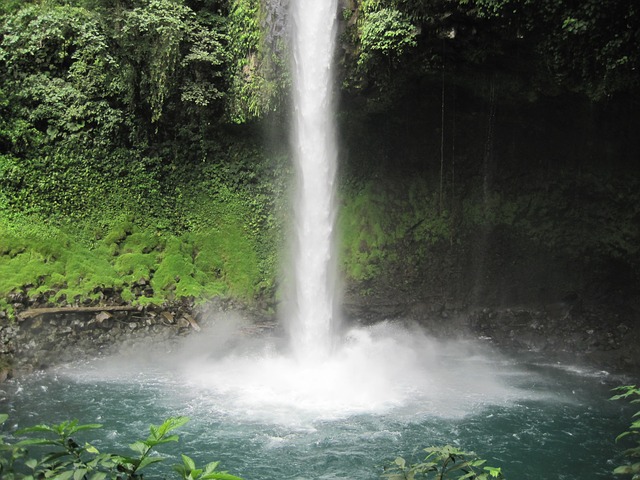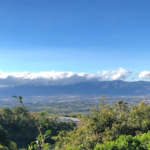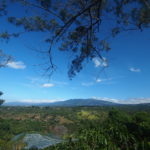Is Costa Rica Safe?

Costa Rica is an amazing country. Between the rainforest, cloud forest, postcard-perfect beaches and ridiculously friendly locals, there is a vibe to the country that encourages everyone to slow down and relax. This easy going “Pura Vida” vibe can also mean people become complacent while on holiday, and not keep the same level of personal safety awareness that they would otherwise.
Most crimes in Costa Rica are those of opportunity, and like anywhere in the world, tourists are seen as targets because there is a perception you must be rich. The most common crimes include vehicle burglaries (such as smash-and-grabs), home robberies (often an inside job), pick-pocketing, mugging, purse snatching and petty theft while you are enjoying a swim in the ocean or waterfall.
Here are some things to watch out for and tips on how to stay safe:
Personal safety
According to the OSAC Costa Rican 2015 Crime and Safety Report, violent crimes like murders, armed robberies, and sexual assaults are not committed frequently against U.S. citizens (or other nationalities). However, like anywhere, they can still occur. Most attacks are opportunistic, such as snatching those $300 sunglasses from your head while standing on the sidewalk.
This happened to my friend when he went for his morning walk on the beach. He was approached by a guy asking for the time, and while my friend was distracted forming an answer, the thief snatched the gold chain from around his neck and ran off. Tips for personal safety:
- Don’t wear flashy jewellery or anything you are not prepared to lose (a nice watch, sunglasses etc.)
- Don’t carry excessive cash, as pickpockets exist, especially in the centre of San Jose.
- Maintain situational awareness.
- It may be safe to walk alone at night in some parts of Costa Rica (although not San Jose), but check with a local or ask at your hotel first.
- Do not carry your passport. Technically, all non-residents are meant to carry their passport at all times, but it is safer to photocopy your details page and visa stamp page instead. Leave your passport locked in your hotel safe, or other secure location.
Keeping your property safe
Unattended belongings on the beach are a prime target, as are empty houses or hotel rooms. Items like laptops and cameras shouldn’t be left on display. Unfortunately, stories of inside jobs by cleaning or security staff are on the rise. Bars over windows and barbed wire along fences are a familiar sights all through Latin America. Unfortunately, these bars gave a false sense of security in my holiday home, and I did not follow the advice I am giving you now about keeping items out of sight.
While I slept, the bars over the windows were spread by a car jack, and the screen cut, so thieves could climb in and steal purses, cameras, ipods, laptops, iphones, cash, shoes, clothes and food. To ensure burglary victims do not confront intruders, burglars are known to use ether to ensure that sleeping residents do not wake, which is widely available at service stations as an engine accelerant.
While never a nice feeling to lose such items or to know you were drugged, especially in a foreign country, I was physically unhurt and most of those items were replaced under travel insurance (which is also something you should make sure you have).
Tips for property safety:
- Always use a safe or lockbox when provided at a hotel. This includes securing items at night, even if you are there.
- Do not leave items where cleaners or maintenance crew might see them.
- If looking for a holiday house, ensure it has a night security person, alarm system and barbed wire fences.
- Always lock your house or room door and windows, even if leaving for just a few minutes.
- Ensure someone stays with your belongings at all times when outside, such as at the beach.
Sign up for a FREE online writing workshop here.
Transport safety
Most theft from cars is also opportunistic, such as when the vehicle is not locked, or when bags or other items are left in plain sight.
A scam targeting rental vehicles that is on the rise is where tyres are deliberately punctured or slashed, and the perpetrators wait for you to pull over so they can pretend to be a “Good Samaritan” and help. While they distract you by changing the tyre, an accomplice will try to steal anything of value from the car.
If you do decide to brave the roads of Costa Rica and hire a car, be aware of the possibility of a transport police shakedown. While road rules seem to be “suggestions only” in this country, and often only followed by tourists, it is common to be pulled over for supposed violations.
The policeman will then “do you a favour” by not writing you a ticket for several hundred dollars (which if not paid could prevent you from leaving the country) as long as you hand over a lesser amount of cash. Tips for transport safety :
- Keep windows rolled up and doors locked.
- Store luggage and other personal items out of plain view.
- If you must stop to fix a flat tyre, drive to a well-lit, safe area first, and be aware of your belongings at all times.
- If asked, give the police a photocopy of your passport rather than the original, so they cannot detain you and essentially blackmail you in order to get your passport back.
And, if you do find yourself in a situation requiring assistance, then dial 911 and ask for an English-speaking operator, as English is not widely spoken among the police or emergency services.
Don’t be put off visiting Costa Rica after reading this article, as overall it is a safe country. However, the same security measures should be taken here as anywhere else in the world. The vast majority of the population is trustworthy, and you can still have an idyllic dream holiday and return home with all your possessions if you use a bit of caution.
Is Costa Rica Safe?
Related Reading
- 7 Things I Didn’t Think I Could Do Until I Moved to Costa Rica
- Why I Decided to Quit My Job and Move to Costa Rica
- Discovering my Fearlessness at Pink Pangea’s Costa Rica Retreat
- Chasing the “American Dream” in Costa Rica
- On Travel and Gratitude
- Wild, Witty, Creative Creatures on Retreat in Costa Rica
Have you enjoyed traveling to Costa Rica? What where your impressions? Email us to share your experience and advice with the Pink Pangea community. We can’t wait to hear from you.
Is Costa Rica Safe? top photo credit: unsplash.com








